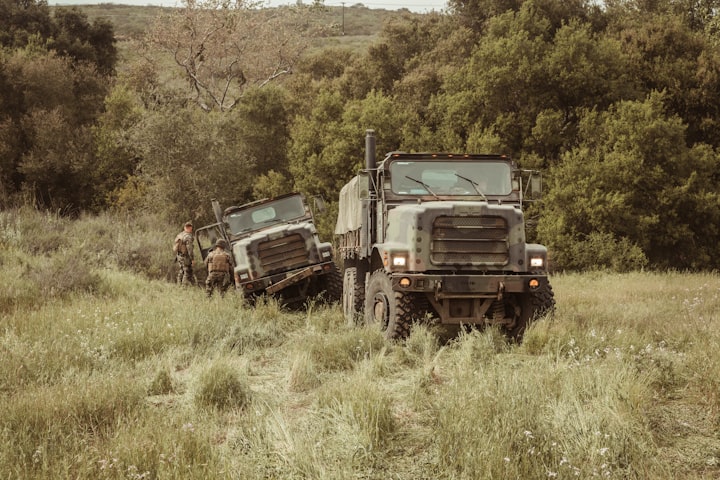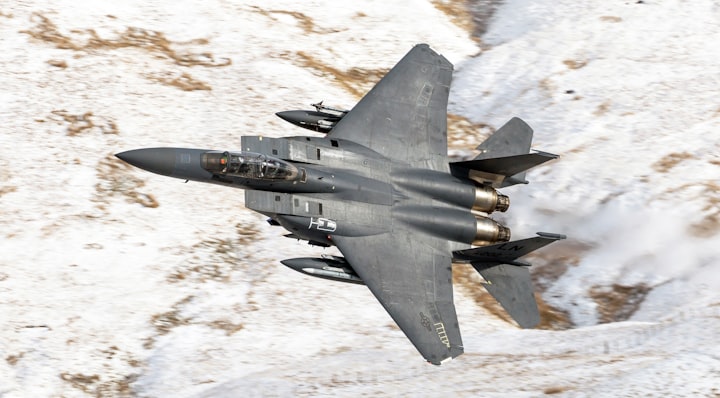5 countries that don't have an army
In a world that often prioritizes military might

In a world that often prioritizes military might, there are a handful of nations that have chosen a different path. These countries, for various reasons, opt out of maintaining a standing army. While some rely on neutrality or powerful allies for defense, others focus on diplomacy and conflict resolution. Let's explore five such countries and delve into the factors that shape their unique security strategies.
1. Iceland - The Land of Fire and Ice Relies on Peaceful Measures
Iceland, a Nordic island nation famed for its dramatic landscapes and geothermal wonders, stands out for its lack of a standing army. With a population of around 370,000, Iceland has historically maintained a small coast guard for fisheries protection and search-and-rescue operations.
Iceland's demilitarized status stems from its long history of neutrality. Following World War II, the country joined NATO but with the specific condition of not being obligated to have military forces. Iceland's defense relies heavily on the United States, with a bilateral defense agreement ensuring protection in case of an attack.
This approach allows Iceland to channel resources towards social welfare programs and fostering a strong civil society. The nation boasts a high ranking in global peace indices, highlighting the success of its peaceful approach to security.
2. Costa Rica - A Paradise that Championed Peace
Costa Rica, nestled between Nicaragua and Panama in Central America, is a vibrant democracy renowned for its stunning rainforests and commitment to environmental protection. This nation abolished its standing army in 1948, diverting resources towards education, healthcare, and social programs.
Costa Rica's demilitarization stemmed from a desire to break away from a history of military rule and focus on social progress. The country maintains a small security force for national security tasks but relies on international cooperation for defense. Costa Rica is a strong advocate for peace and disarmament, playing a key role in international peacebuilding efforts.
The success of Costa Rica's approach is evident in its high Human Development Index and reputation as a peaceful nation. It serves as an inspiration for other countries seeking to prioritize social development and peaceful conflict resolution.
3. Grenada - A Caribbean Island with a Focus on Diplomacy
Grenada, a tri-island nation in the eastern Caribbean Sea, is known for its lush rainforests, pristine beaches, and spice production. This island paradise, with a population of around 110,000, does not possess a standing army.
Grenada's security relies on the Regional Security System (RSS), a collective security organization of Eastern Caribbean nations. The RSS provides a military force for regional defense and has intervened in Grenada in the past to restore order. Grenada also maintains a small police force for internal security.
The decision to forego a standing army allows Grenada to focus on developing its tourist industry and agricultural sector. The country actively participates in international organizations and promotes peaceful solutions to regional conflicts.
4. Mauritius - An Island Nation Fostering Regional Cooperation
Mauritius, an Indian Ocean island nation known for its crystal-clear waters and diverse marine life, is another country without a standing army. The nation, with a population of around 1.3 million, has a long history of peaceful coexistence between various ethnicities.
Mauritius' defense relies on a small paramilitary force for maritime security and disaster relief. The country also maintains close ties with India, which has provided military assistance and training in the past. Additionally, Mauritius actively participates in regional security dialogues and promotes cooperation with neighboring nations.
This focus on diplomacy and regional cooperation has fostered stability and allowed Mauritius to develop its economy, particularly the tourism sector. The nation serves as a model for peaceful coexistence and collective security in the Indian Ocean region.
5. Panama - A Strategic Location with a Neutral Stance
Panama, a Central American nation situated at the crossroads of North and South America, is famous for the Panama Canal, a vital shipping lane. This strategically located country, with a population of around 4 million, does not maintain a standing army.
Panama's demilitarization is linked to the neutrality treaties that govern the Panama Canal. These treaties, signed in the 20th century, prohibit Panama from having a military force capable of threatening the canal's neutrality. The United States previously maintained a military presence in Panama to safeguard the canal, but this responsibility has since shifted to Panamanian authorities.
Despite lacking a traditional army, Panama maintains a public security force for law enforcement and border control. The country also fosters close relations with the United States for defense cooperation. Panama's strategic location makes it a key player in regional security discussions.
The Advantages and Challenges of a Demilitarized Approach
The decision to forego a standing army is not without its challenges. These countries rely on diplomacy, neutrality, or alliances
About the Creator
Moharif Yulianto
a freelance writer and thesis preparation in his country, youtube content creator, facebook






Comments
There are no comments for this story
Be the first to respond and start the conversation.